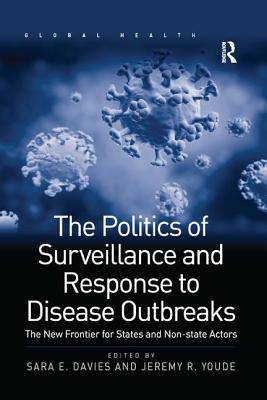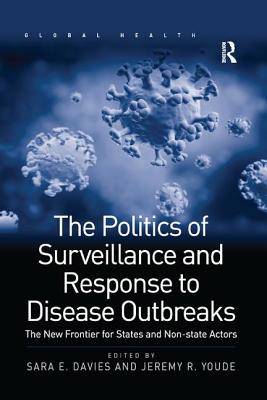
- Afhalen na 1 uur in een winkel met voorraad
- Gratis thuislevering in België vanaf € 30
- Ruim aanbod met 7 miljoen producten
- Afhalen na 1 uur in een winkel met voorraad
- Gratis thuislevering in België vanaf € 30
- Ruim aanbod met 7 miljoen producten
Zoeken
The Politics of Surveillance and Response to Disease Outbreaks
The New Frontier for States and Non-State Actors
Sara E Davies, Jeremy R Youde
€ 67,95
+ 135 punten
Uitvoering
Omschrijving
The capacity to conduct international disease outbreak surveillance and share information about outbreaks quickly has empowered both State and Non-State Actors to take an active role in stopping the spread of disease by generating new technical means to identify potential pandemics through the creation of shared reporting platforms. Despite all the rhetoric about the importance of infectious disease surveillance, the concept itself has received relatively little critical attention from academics, practitioners, and policymakers. This book asks leading contributors in the field to engage with five key issues attached to international disease outbreak surveillance - transparency, local engagement, practical needs, integration, and appeal - to illuminate the political effect of these technologies on those who use surveillance, those who respond to surveillance, and those being monitored.
Specificaties
Betrokkenen
- Auteur(s):
- Uitgeverij:
Inhoud
- Aantal bladzijden:
- 204
- Taal:
- Engels
- Reeks:
Eigenschappen
- Productcode (EAN):
- 9780815377771
- Verschijningsdatum:
- 26/10/2017
- Uitvoering:
- Paperback
- Formaat:
- Trade paperback (VS)
- Afmetingen:
- 156 mm x 233 mm
- Gewicht:
- 381 g

Alleen bij Standaard Boekhandel
+ 135 punten op je klantenkaart van Standaard Boekhandel
Beoordelingen
We publiceren alleen reviews die voldoen aan de voorwaarden voor reviews. Bekijk onze voorwaarden voor reviews.











